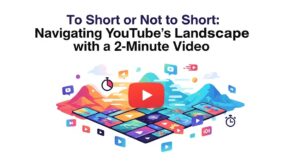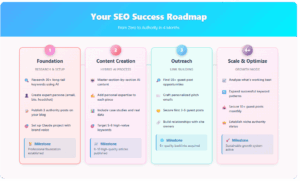Content marking isn’t an easy task. The Internet is constantly evolving, and that means that marketers need to be continuously changing as well. One thing that hasn’t changed is the need for a solid SEO strategy. Search engine optimization itself is always changing, too. With a process that is always in flux, it is very hard to avoid making mistakes. Some of the most common SEO mistakes can be the most critical to hitting your goals.
Rank Fuse is here to help you avoid the most common SEO mistakes that most beginners, and even pros, make.
1. Selecting Bad Keywords
Keywords are a major source of frustration for SEO beginners. Now more than ever, users and search engines are looking for long-tail keywords. Instead of focusing on how you or your company refers to things, learn about how your customers or potential customers refer to them. One of the biggest SEO mistakes that you can make is selecting a bad keyword.
It is also important to not get too specific or too general. There is a fine line between a keyword that is so specific it won’t ever be searched because nobody will know to search for it and a keyword that is so broad that you will never rank for it. Narrow down the things you want to rank for, and try to come up with a keyword that is descriptive.
Don’t be afraid to use local keywords when necessary. If you only serve a specific city, it is far more important for the city name to be included in your keyword. Keep how you do business in mind when trying to frame a good keyword.
Use tools like Google AdWords Keyword Planner or SEM Rush to figure out the keywords that will best work for you. With these tools, you can see trending keywords and learn how to formulate the best keywords for your company or products.
2. Lacking Keywords or Keyword Stuffing
Not using keywords properly is an SEO mistake that many people make. Selecting the number of times you use a keyword in an article is a delicate process. The best advice here is to use the keyword as naturally as possible. Instead of cramming the keyword onto the page 100 times in only 400 words, try to reference the keyword naturally. Overusing keywords will hurt your SEO performance, so keyword stuffing isn’t advised.
While using the keyword only in places that it truly belongs seems easy, if the keyword doesn’t naturally fit into the content enough times, it can hurt your search engine ranking. For the times that it doesn’t seem to fit in the content naturally, try to add to the content you have with more keyword references. If that doesn’t work, try to rework different parts of the content to fit the keyword in a few more times.
If you are having a lot of trouble putting the keyword into your content, you may need to completely reevaluate your content. It could be a case creating content that doesn’t actually relate to your keyword. Rank Fuse recommends reading through the existing content to see if it is connected to the keyword enough. Remember, if you don’t use your keyword enough times, search engines won’t recognize it as relating to the topic you are trying to rank for.
3. Using Duplicate Content
Duplicate content is another one of the big SEO mistakes that many people make! Using duplicate content on your website is a sure way to drop your Google ranking. Whether you are reusing content from your own website or someone else’s, search engines will immediately flag your content in a similar way to spam. Instead of using the same content over and over, create new, different content for every page of your website. The more original content you have, the better you will do when it comes to SEO. The extra time is worth the payoff.
Minor changes in content wont help you either. You will need completely original content to get better SEO rankings. Invest in good content, and you should start seeing better results.
4. Having Content That is Too Short
In the past, short content was just the thing search engines were looking for. Short and to-the-point isn’t going to cut it now. While there isn’t an exact rule for how long things should be, you should strive to get 600 and 1000 words or more on each page. Pages with less than 600 words on them are probably missing key information.
Focus on creating quality content more than a specific number of words, however, because quality work will help your rankings more than a 1200-word article. If you get a keyword-rich, original piece of quality content that is only 400 words, you will still be better off than using duplicate or filler content.
5. Missing Title Tags and Meta Descriptions
When you put content on your website, it is incredibly important to add title tags and meta descriptions. If you skip adding a title tag or meta description to your page or article, you aren’t giving search engines any good information to pull for your listing. The title tag and meta description are the pieces of text that a search engine pulls to show what your page or article is about.
Without a title tag and meta description, search engines pull content directly from the page. This means that headlines that are too long won’t show up completely and the description of the text is just the first 156 characters pulled from the article or page. Crafting a title tag and meta description for each page means that you can fully utilize the number of characters that show on search engines without making them too long.
Title tags should generally be between 30 and 60 characters, while meta descriptions top out at 156 characters. In this short amount of space, you need to tell potential readers what they will see in your article or on your page.
6. Skipping Links
When you add content to your website, you should consider including links. Both internal and external links can help boost SEO rankings. Not having any links on a page is one of the big SEO mistakes.
Internal links are important for showing readers that you have more to offer than what is on the page in front of them. Directing customers to other helpful pages will not only benefit your SEO, but it can also help drive traffic and sales on your website. Showcasing other useful information that you can provide helps you build trust with your audience.
External links help add credibility to your articles, and they give your readers the ability to go elsewhere to learn more information. Any time you can add a relevant external link to your articles or pages, you should do that. When you add an external link, be sure to have the link open in a new window or tab so readers aren’t kicked off your website.
7. Forgetting About Analytics
No system is a fix-all, which means you need to be able to see what is and is not working for your SEO strategy. Having a way to view data makes it easier to learn and adjust to what search engines are looking for to boost your content to the top 10. Not using an analytics tool can cost you a ton of money over time, because you will continue putting your efforts into strategies that may not be working.
Take advantage of an analytics tool to see what you are doing well and what you can improve on to be more successful.
If you need help with SEO and don’t want to do it all yourself, Rank Fuse can help you incorporate an SEO strategy that will get you results. Give us a call today at 913-703-7265 to get started on SEO improvement.





